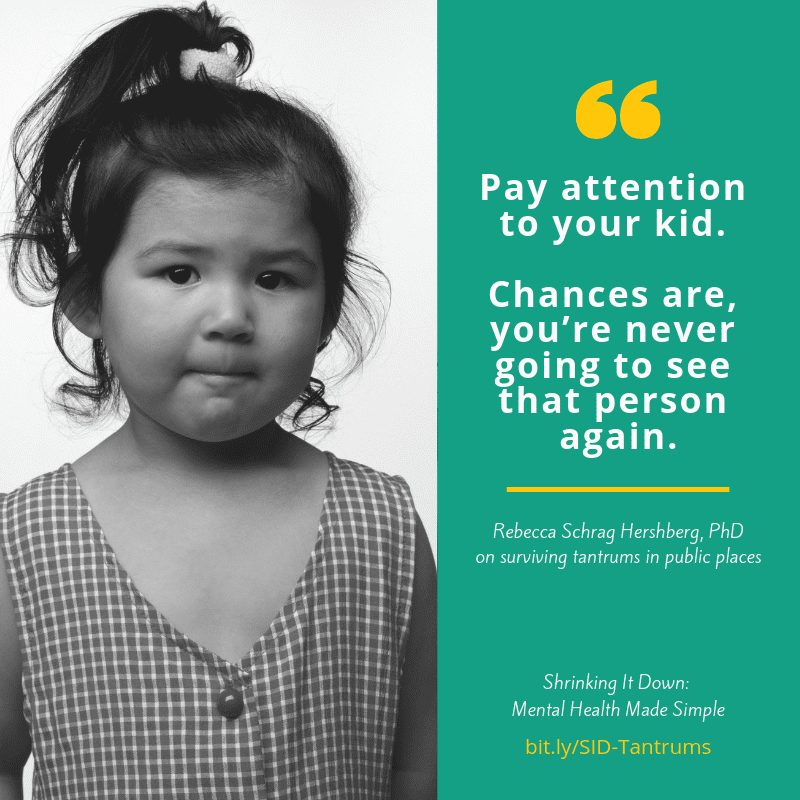Anger: Knowing What Sets You Off and Ways to Manage It

Posted in: Grade School, Parenting Concerns, Teenagers, You & Your Family
Topics: Behavioral Issues
We all have things that tend to unleash our anger. They vary from person to person. Once we have identified the things that set us off, we can work on behavioral strategies to avoid them – or if that’s impossible, to at least minimize them and lessen the feelings of anger that follow. Furthermore, should our anger get the best of us, what can we do – and what can we teach our kids – to manage the situation in the moment, and over time learn healthier ways of coping? Unleashed anger can have long term consequences on our relationships and self-esteem.
Let me give a personal example.
I work long hours at the Massachusetts General Hospital. When my four kids were young, I would leave the house before anyone was up, and when I came home, it was dinner time, or sometimes even later. The kids were ready to demand my attention. And my wife was happy for me to take charge. It was fairly common for my then-two-year-old daughter to grab my pants, screaming “Daddy, daddy, daddy,” and needless to say, that was the last thing I needed after 45 minutes of rush hour traffic and a brutal day at work. I would tend to blow – “Please! Let go of me!” and then the tears would flow. It was awful, and I felt unbelievable guilt. But my anger was unleashed.
What I learned to do was to pick up my two-year-old, cuddle her a little, and say, “Daddy needs a bit of time to settle down, and I will come see you really soon.” (And I had better keep my word!) So, I would go into my office, unpack my briefcase, check my answering machine and email for emergencies, then go and change my clothes. That took about 30 minutes – an eternity for the kids, but it was what I needed to rejoin them anger-free and ready to play. It was never perfect, and took time for us all to get used to. But after a while, the kids knew the routine, what set me off was diminished, and my anger was under control.
So, some principles:
- Identify What Sets Off Your Anger. What causes you to explode in anger? This could be anything from driving in traffic and road rage (which can be deadly for you and anyone in the car or others on the road); disputes with your partner (over finances, house chores, childcare, family issues); even watching the news or sports games (for example, my last dog would see me watching sports on TV and move away from my side, knowing I was going to scream at the TV).
- Manage What Sets Off Your Anger. The example above of creating a new routine that allowed for each me and my children to get what we needed was a way of managing the event that set off my anger. Once you have identified what sets off your anger, you can do something about it. Let’s say the household chores don’t feel balanced to you, which fuels your anger and leads to fighting with your partner. You might need to schedule time to split things up and have regular follow-up meetings. This way, you can clarify roles, obligations, and prevent feelings of resentment or an angry dispute. Be creative and try out different ways of managing what sets you off – not all solutions work, and it make take some trial and error.
- Help Your Kids Manage Anger. Kids have things that set off their anger, too. It may be feeling left out of a conversation or a peer event; it may be what feels like an unreasonable or overwhelming homework assignment; it may be a younger sibling that knows how to push their buttons. You know your child best, and you probably know what sets them off. It is useful to sit down with them and brainstorm ways to avoid events that trigger their anger, or come up with strategies to manage the situations if they occur. If feelings of anger result in self-destructive behavior or threats to others, that needs to be dealt with first. None of us can readily or easily process what drives us over the edge all by ourselves. We usually need others for support, outside perspective, validation (that this situation would make anyone furious), and to brainstorm solutions. If you address situations that set your kids off early in life, through ongoing conversations, it will become part of the fabric of your relationship. Then, as they grow (and the stakes grow higher), they will know they can talk with you. Sometimes parents are not the best folks to help kids manage their anger and what sets them off. Consider older siblings, grandparents, or other family members, or other trusted adults, such as members of your spiritual or social community.
- Avoid Quick Fixes. As you try to lessen our reaction to things that make us feel angry, remember that it takes time, thought, and some experimentation to modify behavior. This is true for most social-emotional endeavors – for kids, teens, and adults. Beware of the temptation to find a quick solution. The most common is use of alcohol or other substances to rapidly “chill out.” Reaching for a drug is one of many pathways toward addiction. And some people actually become angrier under the influence of substances because it disinhibits them. Other attempts for a “quick fix” can include walking away from a situation. Taking a time out from a situation that enrages you may be helpful (and sometimes necessary) in the moment, but be sure to come back and deal with the situation once you’ve had time to cool down.
- Use the Power of Apology. Remember, adults and kids, that we all loose our cool and get angry sometimes. The consequence can be emotionally hurting another person, including family members or friends. There is no substitute for taking responsibility and accountability for your behavior, and a sincere apology goes a long way. You may need more than one conversation for this. The more you do to repair the consequences of your anger, the better you will feel about yourself, and you will gain the trust and respect of others who are important in your life.
Anger is a normal part of our lives and our relationships with others. While it may be a common part of our social fabric, feelings of anger in ourselves and in our children deserve our attention. Everyone will benefit when we take time to identify what sets off our anger, address the things that set us off, and manage the consequences.

 Share
Share Tweet
Tweet





